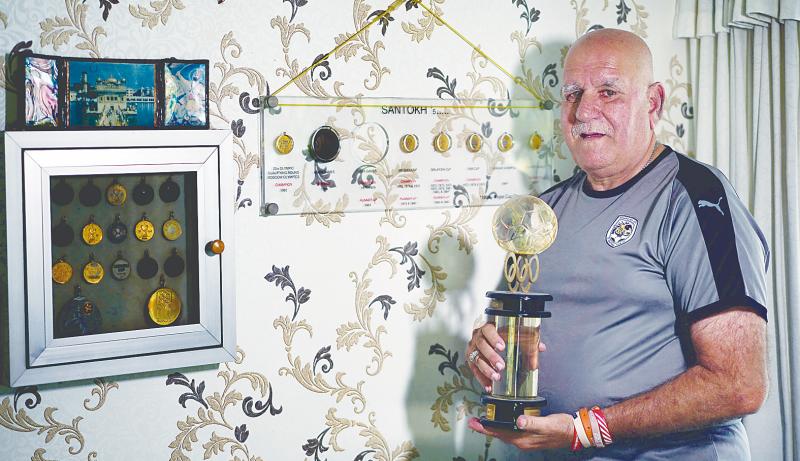IT was his most memorable moment, but at the same time the most heartbreaking one.
“Qualifying for the 1980 Olympics was a fantastic achievement. But the worst moment in my career was not going to Moscow. That was a very big letdown for me,” national football legend Datuk Santokh Singh said as he reminisced his career.
Santokh, who was part of arguably the best Malaysian team to ever grace the field, was one of the players credited for getting the national squad to the Moscow Summer Olympics.
The star-studded team, comprising elite players such as Datuk Mokhtar Dahari, Datuk Soh Chin Aun and Datuk R. Arumugam, snagged a spot in the tournament after defeating the formidable South Korean team 2-1 in the deciding match at the Merdeka Stadium.
However, the team found out a couple of months later that the government had boycotted the Games in protest of host Soviet Union’s invasion of Afghanistan.
“When I heard the news, I was very sad, because it (qualifying for the Olympics) was the best achievement in my career,” he told theSun in an interview recently, adding that winning the bronze medal in the 1974 Asian Games in Iran was another highlight for the national squad, an achievement many Malaysians might have forgotten.
To compensate the players for having to give Moscow a miss, Santokh said the Football Association of Malaysia (FAM) took them on a world tour, visiting countries like Germany and Brazil, in recognition of their achievement.
He said each player was also given a custom-made trophy with their names on it and a 1980 Olympics watch, which he still wears.
“I won’t sell it or put it up for auction at any cost,” he said, with a hint of pride in his voice as he looked at his timepiece.
Santokh said his interest in football started in primary school, when some of his friends, noticing his flair, encouraged him to go for trials in established clubs.
From there, it was all the way up for the Selangor born and bred, representing the Red Giants in its famous red and yellow kit from 1972 to 1985, lifting the Malaysia Cup nine times as team captain.
But it was his national team captain – Soh (Chin Aun) or fondly known as Tauke – that he reserved one of his biggest compliments for.
“He was a fantastic defender who could read the game well,” he said, adding that they still meet as part of a football association known as the “Ex-Nationals”, where they would play in friendly matches every month or two.
Santokh said Soh – with whom he formed one of the best defence pairings in Asia then – was also one of his closest friends in the national squad, besides Arumugam and Mokhtar.
Giving his take on the 1970s and 80s football team, Santokh said the squad then had “a mix of everything” and a hunger and commitment to represent Malaysia and bring glory to the country.
“We had a good, balanced team who were all committed to football and to push Malaysia further. We were also multiracial, which was very unique in football,” he said.
“We were also very united. We were one team, playing for one nation.
“Until today I am still very proud to talk about the team. I don’t think we will be able see a team like that in a very long time.”
Santokh, a Tottenham Hotspur supporter, currently spends most of his time with his family at his home in Setapak.
He is also a brand ambassador for Petaling Jaya City Football Club.
On the local football scene, Santokh said FAM should consider making it compulsory for all clubs to have a certain number of registered homegrown state players in their squad.
He said this was important to improve the country’s football, as it encourages players to play for pride rather than just the money and popularity.
He noted that at present, clubs are not required to have a specific number of players who are born in the states that they (clubs) are registered in, and that they can sign as many players from other states as they like.
“You need this to ensure they are at least proud of representing the club and the state, and will play for the pride and not just the money.
“They (FAM) must have a limit. There should be at least four or five players representing the club that are from the clubs’ respective states,” he said.









